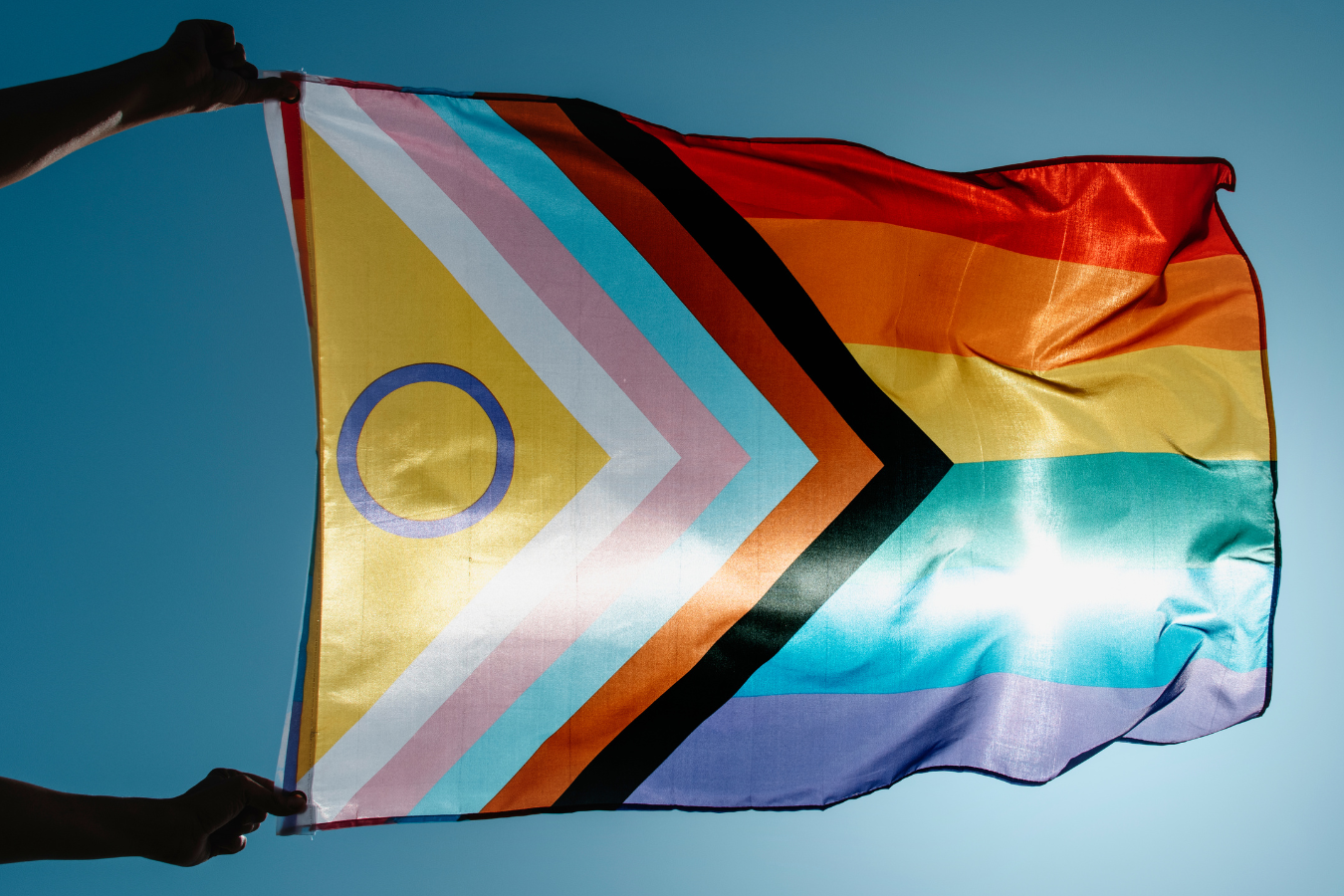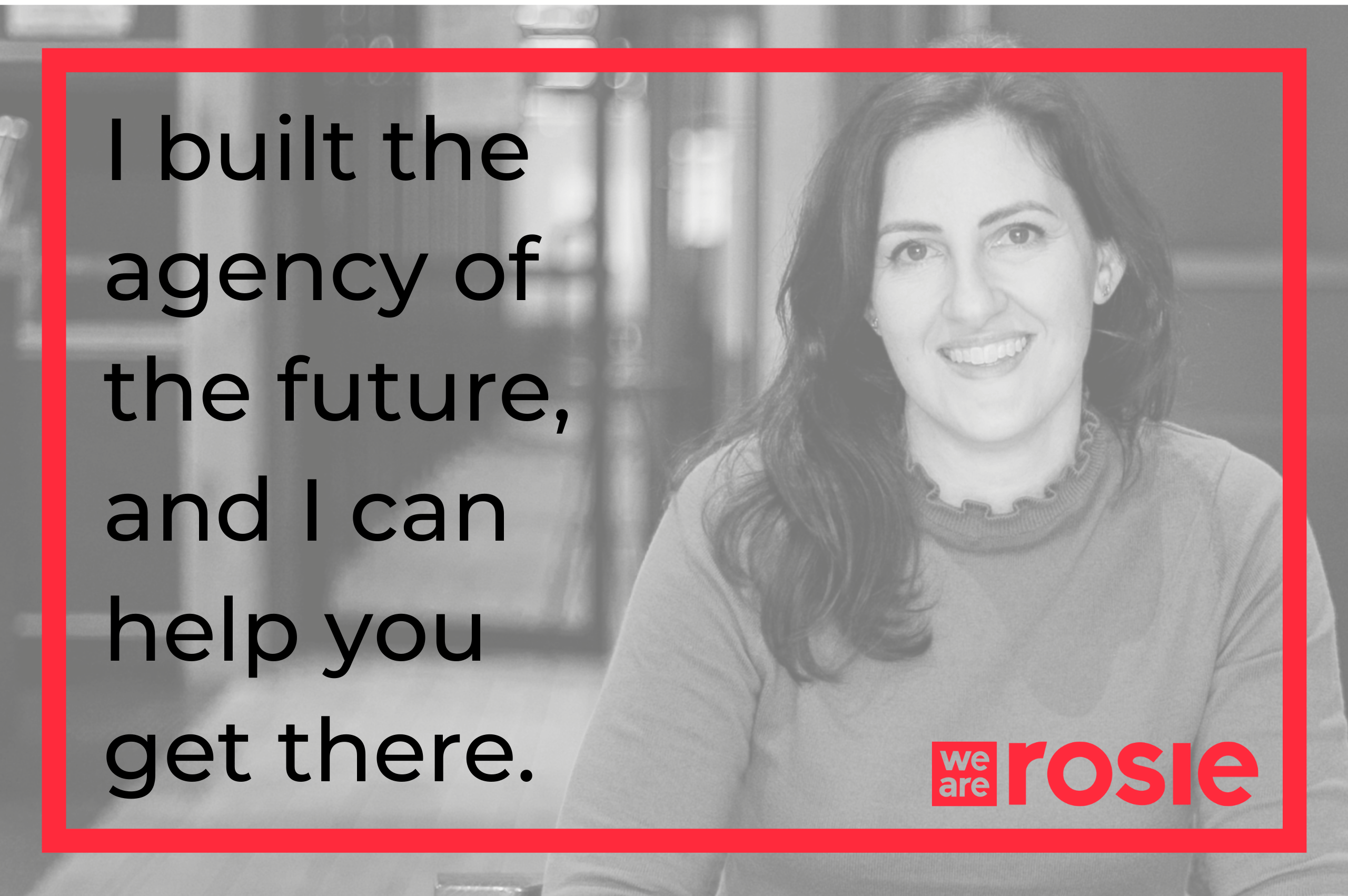Let the LGBTQ+ independent work revolution free your culture and structure
Marketing leaders need diverse voices at the table, but they must rethink traditional team structures or risk losing out on top LGBTQ+ talent.

share this article
Ready to unleash the full power of marketing?
I certainly shed a single tear of happiness upon realizing: going independent meant no more company holiday parties.
While agency leaders definitely want LGBTQ+ people to enjoy themselves, these parties are super heteronormative. The objectification of coworkers. The standards of dress. The music. The beer pong. The venues. As office pizza parties become a meme trope, I feel free of them.
*deeply exhales*
My motivations for going indie have layers. What started as a curiosity to focus more on strategic work became a stronger desire to choose my client partners, and ultimately a need for time flexibility allowing corporate activism through Do the WeRQ.
I didn’t immerse myself in freelance work because I’m gay, but its perks play well to my gay life. No one is suggesting I shouldn’t wear a loudly queer shirt outside of Pride; I’m not the reliable, default cultural educator on the payroll; no one tries to couple me with The Other Gay Guy at The Office anymore.
It’s my singular experience—but I’m not alone. And it’s because indie professionals are often left out of industry-wide DEI discussions (in lieu of focus on big city agencies) that I’ve pondered this situation more fully. What I’ve explored and learned compels me to hypothesize that there are probably more LGBTQ+ people in the freelance sector, proportionally, than there are in the agency sector.
I don’t know for sure. But thanks to We Are Rosie, there are things I do know.
I know that when asked if the pandemic was a motivation to consider or pursue freelance work, respondents said “yes” at a 60% rate, while LGBTQ+ people agreed at 81%. I also know that when members of marginalized groups who prefer hybrid work were asked if they’d leave if it wasn’t available, LGBTQ+ employees were 24% more likely to leave than non-LGBTQ+ respondents. For comparison, Black employees were 14% more likely than White peers; nonbinary employees were 18% more likely than men/women.
You’re on board with diverse voices at the table, so it’s really that step beyond intent that demands focus. Rethink how you need to build your teams and company culture to make that intent a reality—and keep those voices at the table.
As our nation makes loud attempts to erase LGBTQ+ culture and rights, we’ve countered with the assertion that we’re here to stay, to fight for our identities and existence. And what these workplace numbers say is: we’re also no longer in a place where we’ll let corporate tradition silence us either.
Pride is a protest, not a parade. And that applies gradually to our work.
But, good news! Protests are created to pursue freedom, and the exploration of needed freedoms is what’s driving a workplace revolution (which you’ve maybe heard of).
That’s why, agencies and employers, it’s your job to apply what you already do as marketers to make this revolution a positive force for your company: listen to marginalized people, discern their motivations, and create a personalized experience based on new perspectives.
You’re on board with diverse voices at the table, so it’s really that step beyond intent that demands focus. Rethink how you need to build your teams and company culture to make that intent a reality—and keep those voices at the table.
So, marketing leaders: don’t hire or engage people to work on projects in only one, set way. Free yourself, with direct inspiration from the LGBTQ+ motivations to work independently. A switch from classic formulas can lead to more happiness and less needless competition.
Create freedom in partnership dynamics
Once my colleagues joked, “Clients expect monogamy from their agency partners, while they enjoy polygamy.” Insightful. Pretty funny. SO true. The even cooler aspect of the discussion: they acknowledged that these dynamics were OK. They understood that—in the construct of this analogy—monogamy was enough to make them happy and they weren’t distractingly jealous of other agencies in the scenario.
LGBTQ+ communities are leading the reconfiguration of established partnership dynamics in society. We practically invented chosen family for a modern era. Throuples and polycules are part of our cultural discussions as we find new ways to love and connect.
Follow suit, consider the possibilities of the layer cake workforce specifically, and build the relationships that work for you and your talent partners. Welcome LGBTQ+ people into mutually beneficial conversations on partnership dynamics (without invasively asking about our own relationships)—knowing that our community is helping to reinvent all manner of partnerships for broader culture.
Create freedom of environment
I’ve experienced the irony of working full-time at agencies that expected certain team members to understand every aspect of cultural experience—yet they didn’t have a dime to send anyone to Coachella. Employees who found a way to go on their own dime were still beholden to client emails on-site, and then were expected to write up their report on the experience at a desk amidst a neon-lit open floor plan.
“It’s not rocket science: if you expect people to be masters of culture, let them go experience it.
It’s not rocket science: if you expect people to be masters of culture, let them go experience it. And remote work is positioned to provide this freedom. When it doesn’t mean subsidized days off at DragCon, it should at least mean the ability to experience the new queer-owned coffee house in town. But work with LGBTQ+ people on how we’ll roam to consume new experiences, and then trust us to return to the work more engaged than ever. The traditional constraints of office life won’t allow us to bring the strength of our queer life experience to the creative process.
Create freedom for LGBTQ+ perspective on “the general market”
In a study by Do the WeRQ and DISQO, 43.6% of general respondents said that it was important to them that advertising is made with the involvement of people who are part of depicted communities (e.g., LGBTQ+ and multicultural communities). And the scarier part: only about half of non-LGBTQ+ respondents (51.9%) believe that LGBTQ+ people working in advertising can make good contributions to non-LGBTQ+ content.
To paraphrase: a startling amount of straight respondents thought that queer people can’t reliably make ads for straight people. As if that’s not what we’ve been doing our entire lives.
It’s because we’re in a very heteronormative society that LGBTQ+ people have always had to understand cultures that we don’t belong to. So let us flex our muscles—with support rather than tokenization—to help create work and policies that capitalize on respectful connections to communities outside a person’s own personal experience. We have an inherent edge, as people who’ve always had to do extra work to align what’s “mainstream” while bringing in our own “outsider” expression.
LGBTQ+ respondents of the 2022 Rosie Report study were more likely to say they “absolutely” would recommend freelance work to a friend, compared with people who didn’t identify as LGBTQ+: that’s 61% versus 36%. And that’s because remote and flex work are forms of inclusion. Freedom of work experience has been deemed “less than” the standards of full-time office trappings for too long.
As LGBTQ+ people free ourselves for personal expression, reimagine your inclusion and culture for the creativity that exponentially grows the bottom line. The real party is joyful collaboration. And after a long day of more fulfilling, fairly compensated work at home, I’ll order my own pizza.

